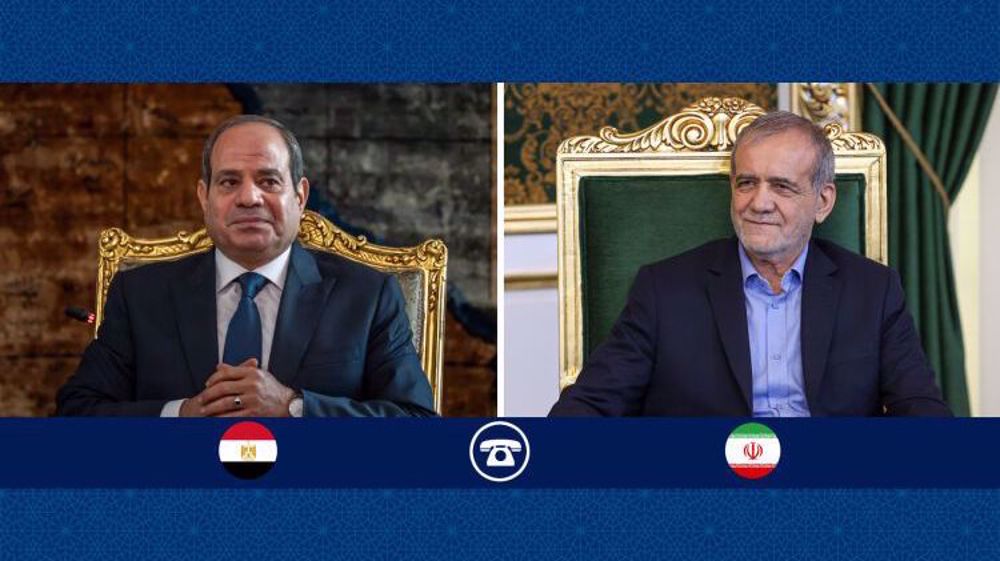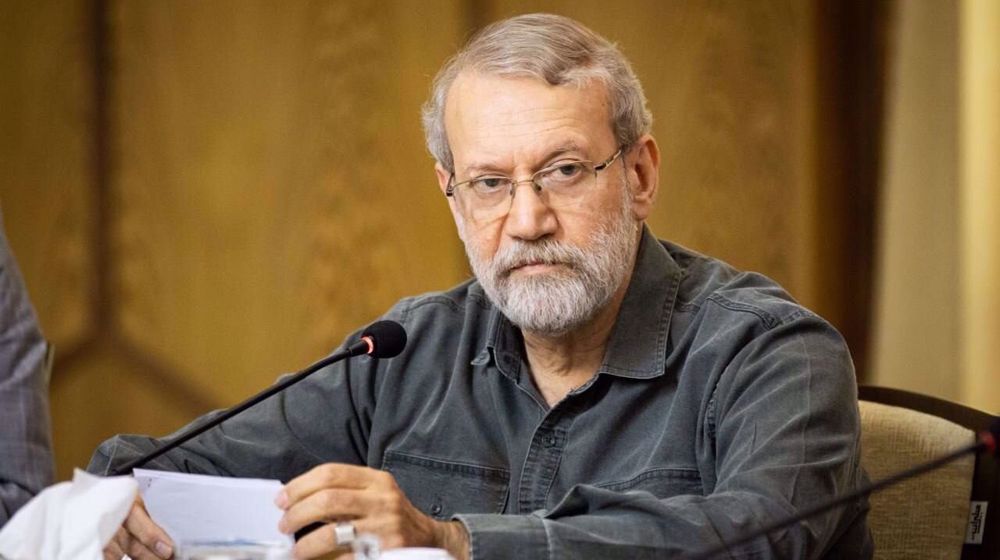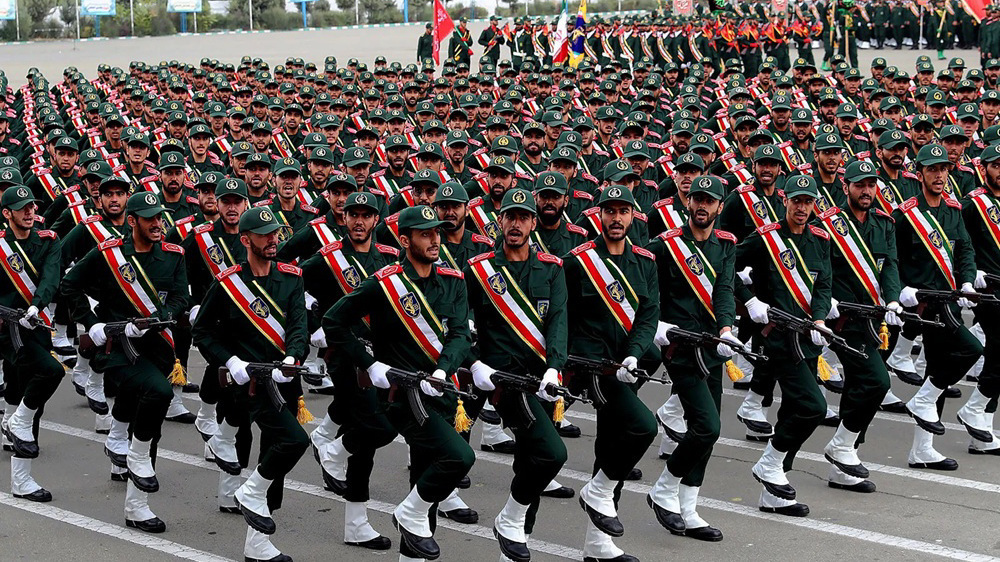Biden admin. hasn’t been serious about sanctions relief so far: Ranking lawmaker to Press TV
An Iranian lawmaker says although US President Joe Biden’s administration argues against his predecessor Donald Trump’s “maximum pressure” policy against Iran, it has so far not been serious about lifting Trump-era sanctions on the Islamic Republic.
Abolfazl Amouei, spokesman for Majlis (the Iranian parliament)'s National Security and Foreign Policy Committee, made the remarks during a live interview at Press TV’s studio on Wednesday.
“They say the maximum pressure campaign has failed. The major issue in this campaign was the sanctions, and none of these sanctions have been lifted,” he said.
Biden team still ‘living in Trump era’
“This means that the United States, from our view, is not serious about lifting the sanctions,” the legislator noted. In this sense, the Biden administration is, therefore, “still living in the Trump era.”
In line with the campaign that constituted Trump’s trademark Iran policy, the US left the Joint Comprehensive Plan of Action (JCPOA), a historic 2015 nuclear deal between Iran and world countries. It then reimposed the inhumane economic sanctions that the JCPOA had lifted.
Iran stayed committed to the deal for more than a year, but then began a set of remedial nuclear measures that it is entitled to take under the accord’s Paragraph 36.
Washington has repeatedly been asking Iran to re-engage it in talks over the nuclear deal. Tehran has, however, refused to renegotiate a done deal, and insisted that it would only stop its adherence to the JCPOA paragraph once the US lifted all the sanctions in one step and in a way that could be verifiable by Tehran.
Amouei said it was because of this very lack of seriousness on the part of the US that Iran refrained from engaging in negotiations with Washington. “We are not ready to engage in negotiation for the sake of negotiation. It’s not good for us,” he stated.
‘If US wants to waste time, we don’t’
“If they want to waste time, from the Iranian side, we know that we are not ready to waste our time in Vienna," The parliamentarian said, referring to the talks in the Austrian capital aimed at potential restoration of the JCPOA.
“We have enough time in Iran, and we have found the way to circumvent the sanctions mostly by promoting domestic production and secondly by finding new foreign [trade] partners,” the lawmaker said.
Meanwhile, the spokesman noted that even if the US were prepared to lift the sanctions, this process had to materialize in action in a way that Iran can draw its due benefits from it.
He noted that the US lifted the sanctions just on paper the previous time following the JCPOA’s adoption. However, the US Treasury Department’s Office of Foreign Assets Control (OFAC) or some American legal bodies then issued advisories, warning foreign companies against engaging in business with Iran.
Iran does not want a repeat of the ”negative experience,” Amouei noted.
Palpable sanctions relief, he noted, has to manifest itself in three areas. First, Iran has to be able to sell its oil; secondly, it should be able to access its financial resources in foreign banks; and thirdly, the obstacles lying in the way of the country’s banking transactions with the outside world have to go away.
Verification process
According to the official, if the US was ready to enable the prospects, the executive branch of the Iranian government would report on such potential sanctions relief to the parliament. The legislative body’s various committees would, in turn, review these reports, and finally its lawmakers would vote to verify removal of the sanctions, he said.
Majlis, the spokesman noted, would need from three to six months to finish its verification process.
Nevertheless, “If they will be really ready to come back from the maximum pressure campaign, we think we can have some chance for reducing this time,” Amouei stated.
Sanctions ‘psychological result’
The official, meanwhile, observed that the US’s steps in the past to retain the actual hindrance to Iran’s trade with the international community had led to some “psychological” results. He was referring to foreign companies’ fearfulness of trading with Iran and falling into the sanction trap.
“We need some time for the removal of the legal basis of the sanctions, and after that we need time for [elimination of] the psychological problem of the sanctions,” the lawmaker stated.
UNRWA: Israel carrying out 'silent war' in occupied West Bank
VIDEO | Fighting British state
Hamas hails reopening of Rafah crossing as big gain
Bedouin village in West Bank fully emptied due to Israeli settler violence
VIDEO | Iraqi Parliament fails again to elect president amid Kurdish deadlock
VIDEO | An oil deal for India? Trump’s claim meets silence and backlash
VIDEO | Yemen scholars rally behind Iran, call for Islamic mobilization
One person killed in Israeli strike on southern Lebanon









 This makes it easy to access the Press TV website
This makes it easy to access the Press TV website